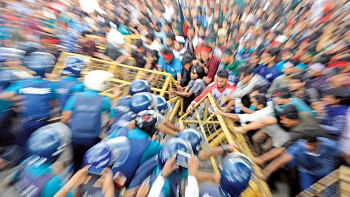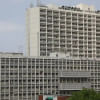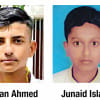The violence must end

Twenty-nine dead, at least, and over 3,000 wounded, in one single day on Thursday. Eleven of those killed were students, a 17-year-old school child among them, and the rest includes a journalist, two rickshaw pullers and a pedestrian. While the identities of all the deceased could not be confirmed, what is apparent from media reports is that most of the victims were hit by shotgun pellets when law enforcers fired indiscriminately. A day later, even without any internet connectivity in the country, reports of violent crackdown on protesters are coming in. As of writing this editorial, 11 have been killed in attacks, many of them students. Dhaka as well as many other parts of the country have turned into areas of violence, with gun shots and grenades going off even late into the night.
What can possibly justify any response by the law enforcement that has led to this death toll? What is even more ironic is that while the attacks on protesters continued, the government was making calls for peace and dialogue. Peace and dialogue, as much as we all want it now, are not achieved through shotgun pellets and live bullets.
Who will take responsibility for all the deaths? The protests we have seen were largely peaceful—and the government, too, reacted with great restraint initially—before unprovoked attacks first by armed cadres of the ruling party, and then by law enforcement earlier in the week. What of the right to protest as enshrined in our constitution? It may seem pointless to ask this now, but what's the worst that would have happened had the protesters been allowed to carry out their shutdown programme without any intervention, as we saw in the first weeks of the protest? It may have caused inconvenience to ordinary citizens, and certainly the government, but it would not have led to so many unwarranted deaths. And if the aim on Thursday was to control a crowd from becoming violent, why did they not use non-lethal means to disperse them? Such indiscriminate and disproportionate violence has clearly only further incited an already angry crowd.
There are news reports of the cruel way that many of the students were killed. While we are glad that a police committee has been formed to probe the killing of Abu Sayed, can we expect the same for every death that has taken place? We can only hope that the judicial probe that has been promised to investigate the deaths will look into police excesses and recommend action accordingly.
It may well be that at this point other elements have infiltrated the movement and are carrying out violent activities not endorsed by the students. One of the coordinators of the movement has already disassociated themselves from political elements and destruction of public property. It is imperative that for the credibility of the movement, the students continue their protests peacefully. It is also important to distinguish the quota reform movement from those wanting to take advantage of the situation, but in order to do that, the government must first assuage the protesters. While we welcome the government's move to appeal to the court to keep 80 percent government jobs based on merit, and for the hearing to be held on Sunday, we urge it to follow through with confidence-building measures, first and foremost among which is putting a stop to the violence.
On top of all these, the government has decided to suspend internet connectivity in the country. To what end, we must ask. We have seen time and again how breakdowns in communication breed rumours, insecurity and anxiety. It also makes it impossibly difficult for journalists to do their job and provide a trusted account of what is happening on the ground. Ultimately, it further erodes trust and impedes any path to dialogue. We urge the authorities to restore internet connection across the country immediately.

 For all latest news, follow The Daily Star's Google News channel.
For all latest news, follow The Daily Star's Google News channel. 








Comments